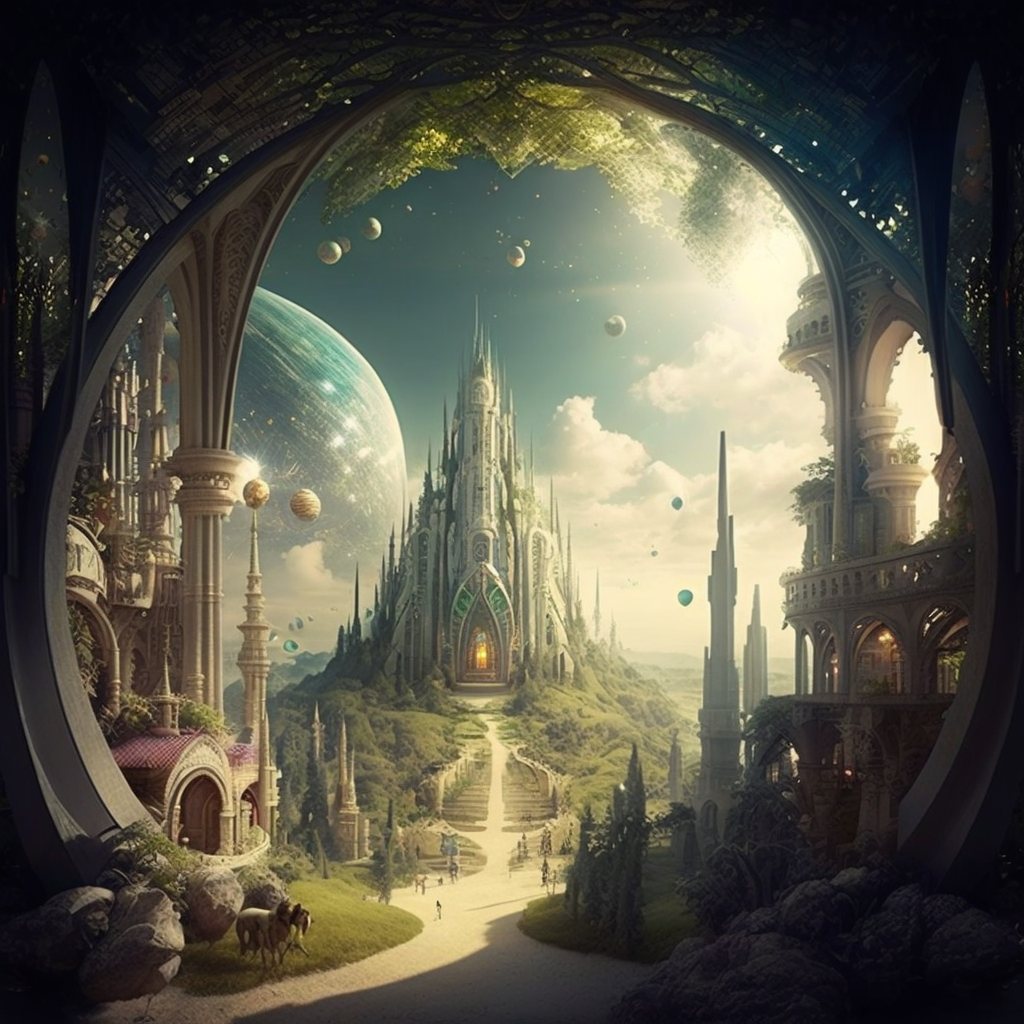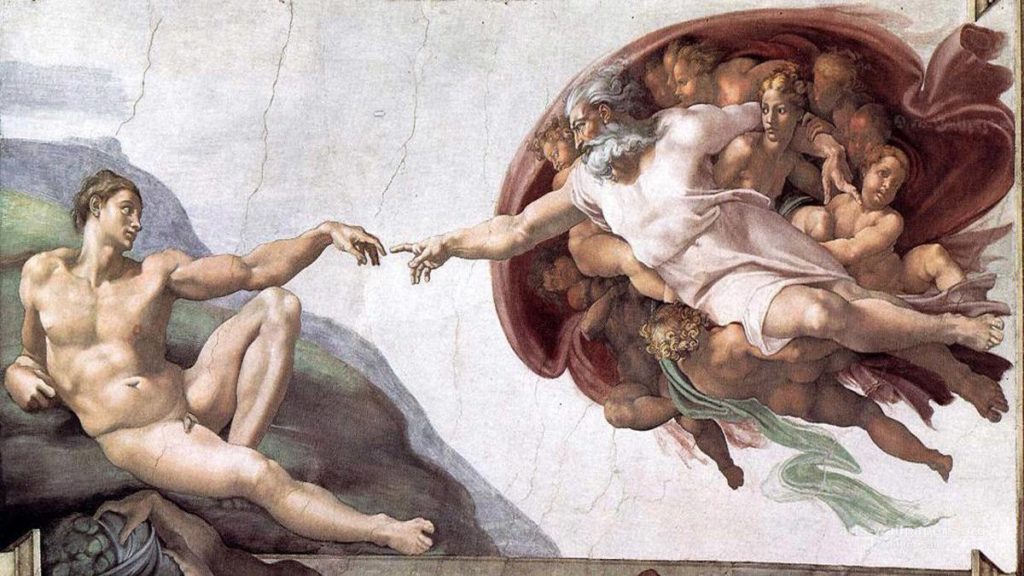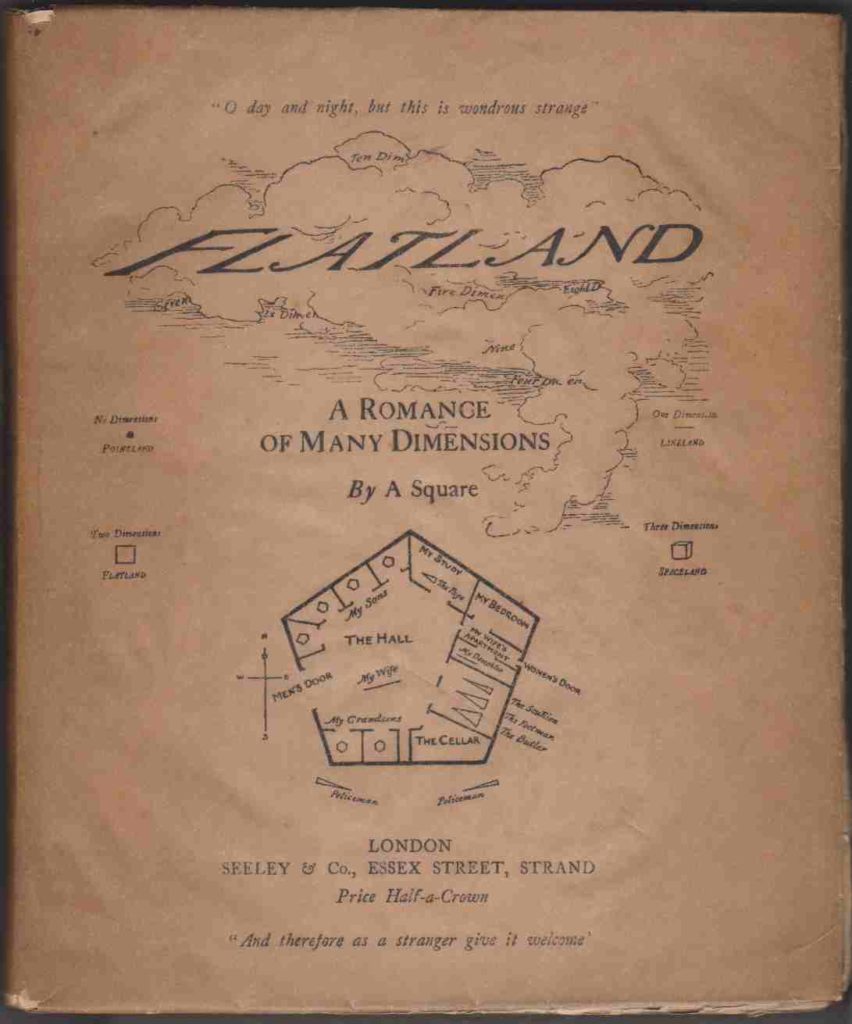Space 1
I’ve been looking at the idea of ‘Space’ and our changing thoughts on what that is and where we exist. These changes are prompted by new discoveries, new technologies or media, each one extending us and giving us access to a new way of being in and perceiving the world. Our thinking about space dictates how we think about ourselves – where we are, where we can be, who we are – and this shapes the way we express ourselves within stories, in art and in the wider world.
We can think about space as simply an empty void that stuff goes into. This underpins our concept of physical space… so our universe, our world, our cities, the room you are in…
We can think about this type of space as being constructed. By that I mean created by the laws of Nature or by humans- so architects, governments, farmers, businesses…
There are, however, spaces that are non-physical spaces that are ‘mentally constructed’. Within mathematics and science there are phase space, molecule space, evolution space, viral space, vector space, etc… We can also talk of literary spaces, dream spaces, ideological spaces, mythological spaces. The web is another type of mentally constructed non-physical space.
I’ve been looking at examples of films – mainly – about characters that travel to a ‘new or a different space’ in order to see how films have reflected our changing understanding of where we are over the years. I am not looking at Time Travel, though occasionally ‘different timelines’ pop up.
Traditional ideas of space were based on the belief that there was a godly dimension that existed outside of our world. We built buildings that acted as portals or liminal spaces between ourselves and the gods. We wrote stories and made works of art about travelling between these worlds. We have a long history of thinking about separate spaces.
Traditionally we didn’t think of ourselves as having a ‘history’; we thought of ourselves as having a ‘nature’ or an ‘essence’ that was placed inside us from this other realm. We lived our lives as if we were tethered to this other space.
This started to change in the Modern era. Scientific discoveries started to sever our link to the godly realm. And because our world and the way we lived changed profoundly for the first time in our history, we started to think of ourselves as having a Past, a Present and a Future. We started existing in Time. The Modern era was guided very much by the Arrow of Time.
And yet the Modernist organisation of space was very rigid, very precise and disciplinary. Every individual within a school, prison, factory, hospital had their own space; each space had its own purpose.
There were spaces that you should be in, spaces that you couldn’t be in. There were strict categories with clearly defined boundaries in between them. And yet we start to see stories about going into spaces that are separate from ours. Or even stories are about travelling to different dimensions.
And then film came along. Projected onto a screen in a dark room, film was an evolution of things like shadow theatre, magic lanterns and phantasmagoria. It’s phantasmagoria in particular that set out to breakdown the boundaries between our world and the godly realm. Images of ghosts and demons were projected onto smoke or semi-transparent silk which made it look like beings from the underworld had entered our world.
Cinema opened up a new kind of space- another world beyond the screen- but one that was populated by us, not by gods, demons or ghosts. This new space was in a separate world to ours that we could see through the screen on the wall.
Film allowed us to see new worlds that we could previously only read about. These were stories about another space that the protagonists travel to, and though they may be temporarily changed, they remain fundamentally themselves… They are an ordinary person who has travelled to an extraordinary space, they meet extraordinary beings and they see extraordinary sights.
The protagonists were often ‘accidental travellers’ – they hadn’t purposely set out to make the journey, like Time travellers did- but circumstances provided them the opportunity and they took it. They were delighted – for the most part – by these different space.
When they return home- or wake up- they are a more knowledgeable version of themselves. They had life changing experiences, but they ultimately realised the real world was the best place to be… it’s where they belong.
In this era, there is a Fantasyland which is a different space to the one we know. Though we- as good, decent, moral individuals- can observe extraordinary, unconventional or unique people and events in this different space, we know that the different space is ultimately inferior to our own. We belong in our space, they belong in theirs.
Midjourney


